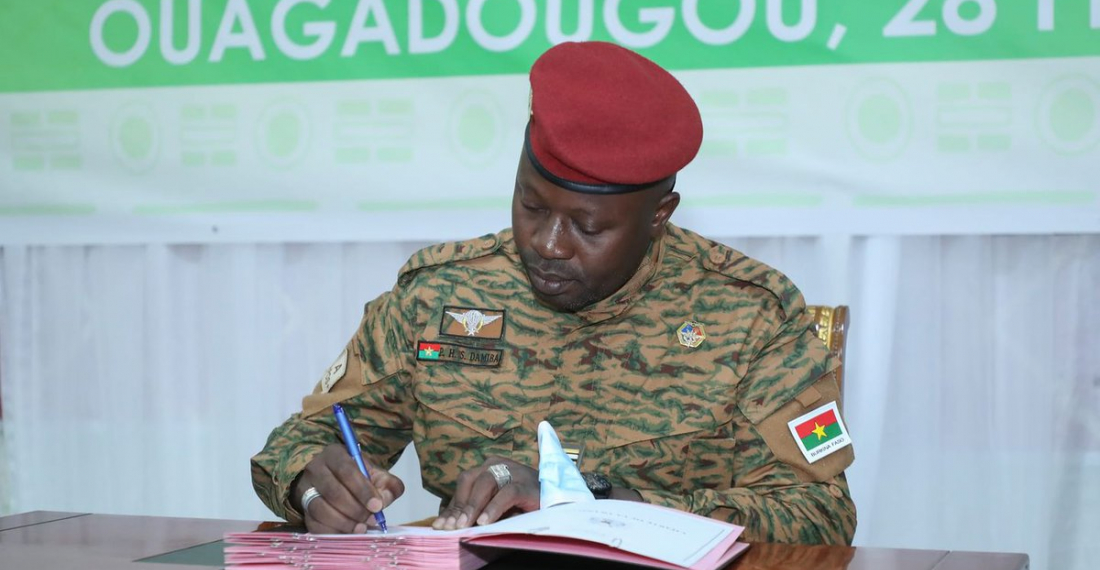A national conference in Burkina Faso has authorised the ruling military junta to organise the transition period leading to a return to constitutional order and civilian rule within three years.
Thus, Lieutenant-Colonel Paul-Henri Damiba, who ousted the elected president Roch Marc Kabore on the 24 January coup d’état, is expected to rule the country for the next three years until elections are held.
Lieutenant-Colonel Damiba will finally be sworn in as Head of State tomorrow (2 March) by an assembly gathering the junta, different opposition parties and trade unions, some civil society organisations as well as people displaced by the jihadist attacks that have hit Burkina Faso since 2015.
However, the charter approved on Tuesday (1 March) states that the new interim president or his government members will not be eligible to run for the next presidential, legislative and municipal elections that will be organised at the end of the transition period. The transitional government will consist of 25 ministers and a 71-member parliament.
The decision could put the West African country on a collision course with international partners who had called for a swift return to constitutional order following a coup that was widely supported by the population as the former president was considered incapable of containing the growing violence of Islamist militants in the country.
Indeed, Burkina Faso was suspended by the 15-member Economic Community of West African States (ECOWAS) and the African Union following the coup. ECOWAS subsequently asked the new military junta to present a "reasonable timetable for the restoration of constitutional order". Discussions should therefore be initiated quickly between these regionall organisations and Burkina Faso to determine whether a three-year transition period is acceptable.
Although ECOWAS has not yet imposed financial sanctions against Burkina Faso whilst the latter's neighbour Mali is subject to economic sanctions that have forced Bamako to pay more than $100 million in interest and capital payments on its debt.
In a region that has experienced more than four coups in 18 months - with two successive ones in Mali, one in Guinea, and recently one in Burkina Faso - the length of transitions is at the heart of negotiations between the countries affected by the coups and ECOWAS. Deemed "unacceptable" by ECOWAS for being too lengthy, the five-year transition proposed by Mali was not accepted by the institution.
Once a region that had a reputation as the continent's "coup belt”, West Africa has been weakened by the numerous attacks perpetrated by armed militants linked to Al-Qaeda and the Islamic State who have killed more than 2,000 people and caused the displacement of more than 1.5 million citizens.
By appropriating swathes of territory, the terrorists have succeeded in instilling fear in the West African populations, who are now demanding and supporting political change that is militarily capable of pushing Al-Qaeda and the Islamic State from their territory.
The new interim President Damiba stated that his main transitional tasks were the “fight against terrorism and the restoration of the national territory” as well as the strengthening of governance through the “fight against corruption”.
The government is therefore expected to satisfy the security needs of his frightened population while respecting the transitional deadlines demanded by Burkina Faso's international partners.







